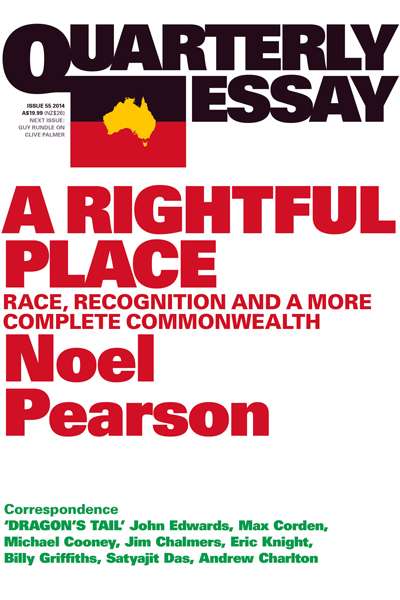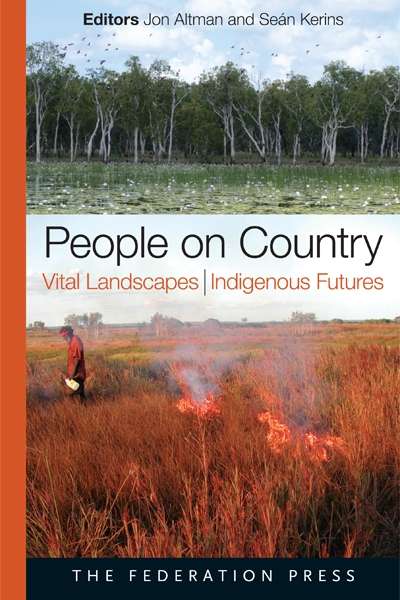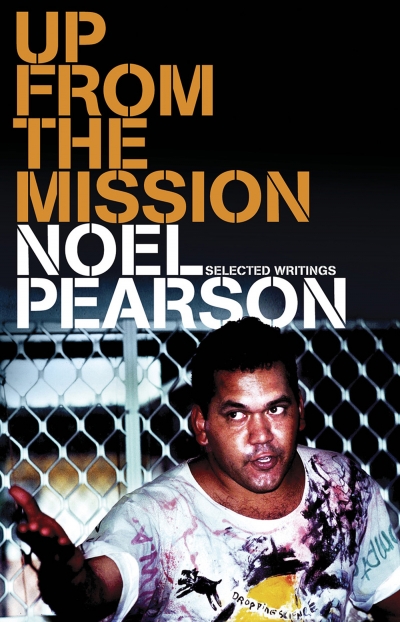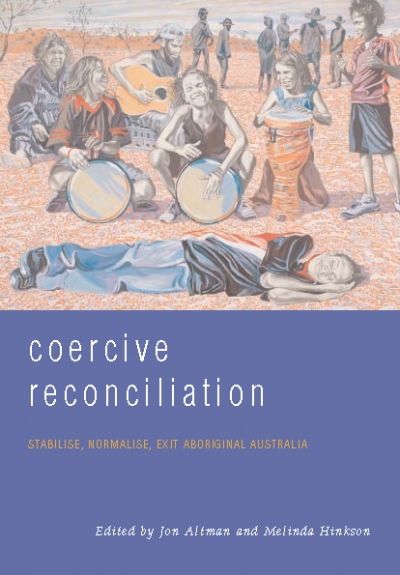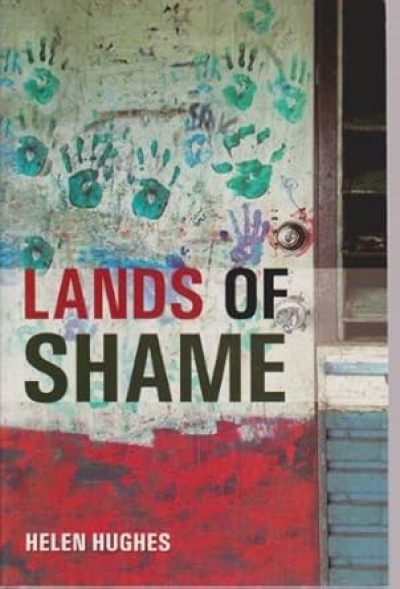Jon Altman
A Rightful Place: Race, Recognition And A More Complete Commonwealth (Quarterly Essay 55) by Noel Pearson
by Jon Altman •
People on Country: Vital Landscapes, Indigenous Futures edited by Jon Altman and Seán Kerins
by Richard J. Martin •
Culture Crisis: Anthropology and Politics in Aboriginal Australia edited by Jon Altman and Melinda Hinkson
by David Trigger •
Coercive Reconciliation: Stabilise, normalise, exit Aboriginal Australia edited by Jon Altman and Melinda Hinkson
by Bob Reece •

